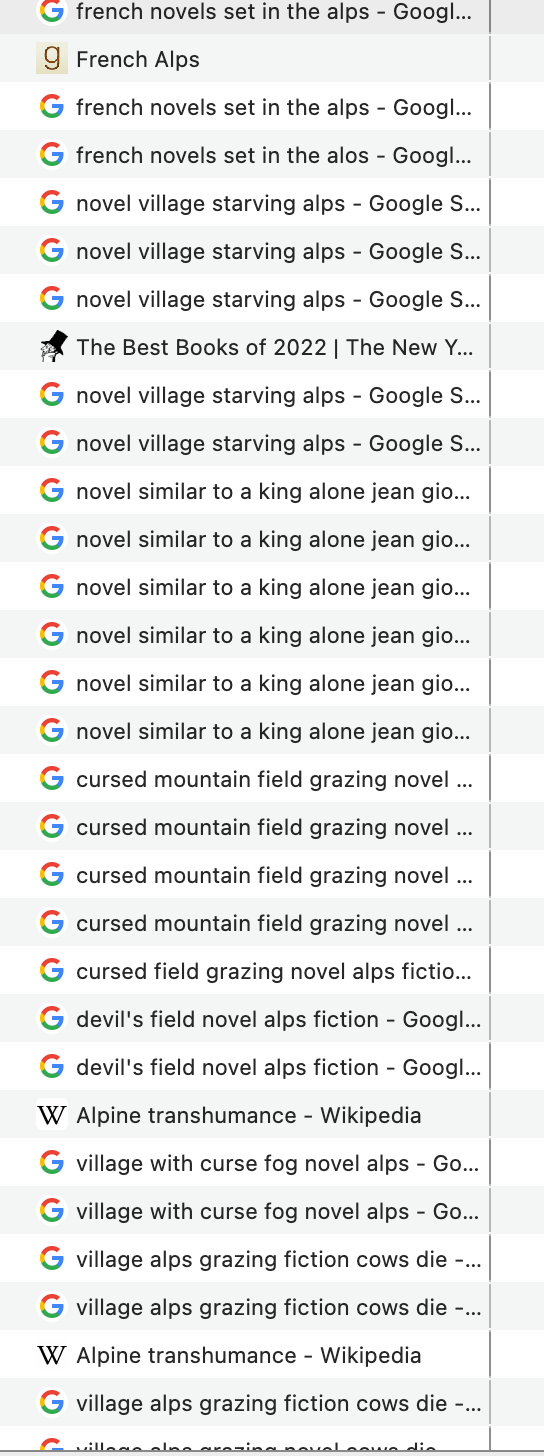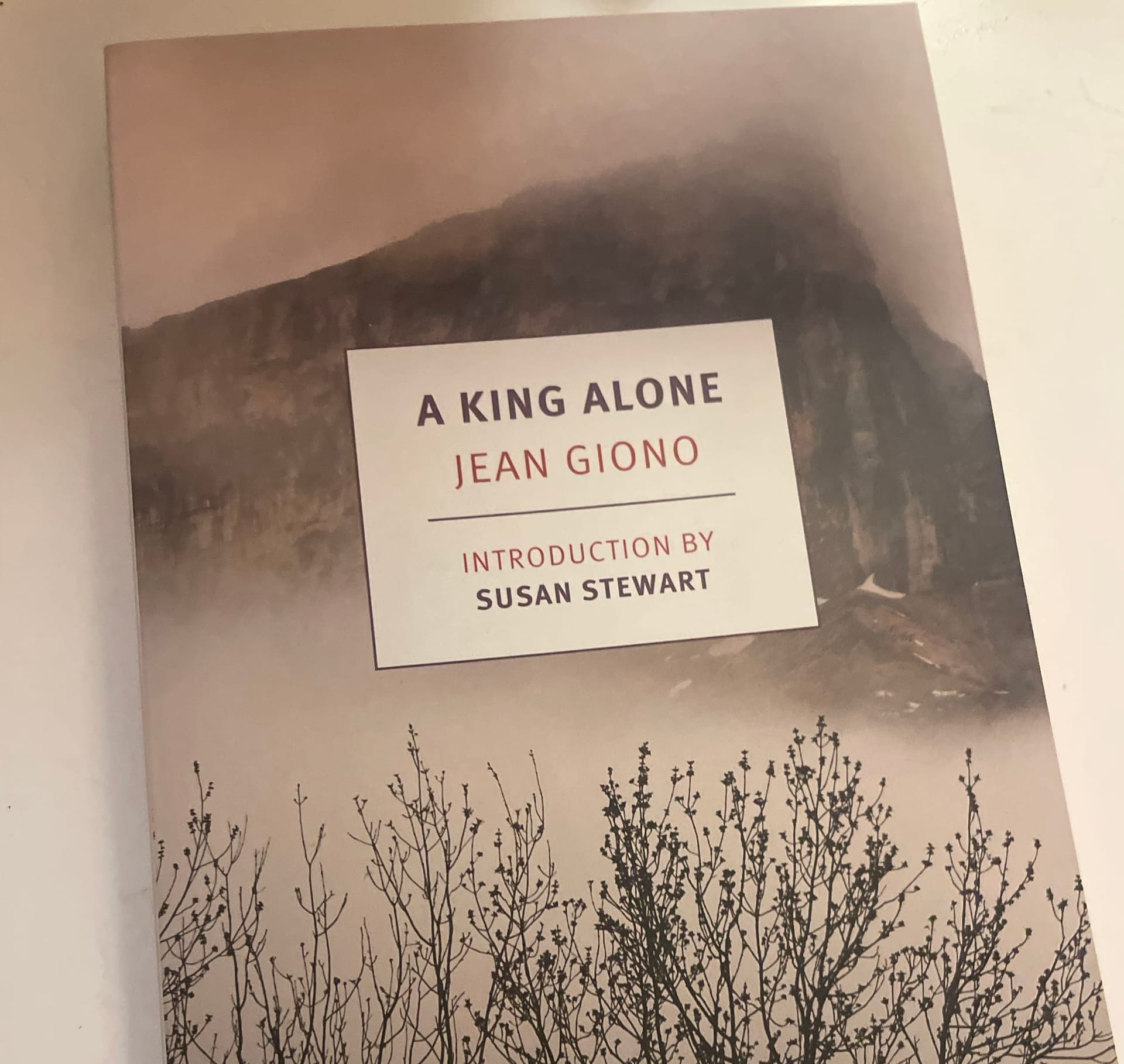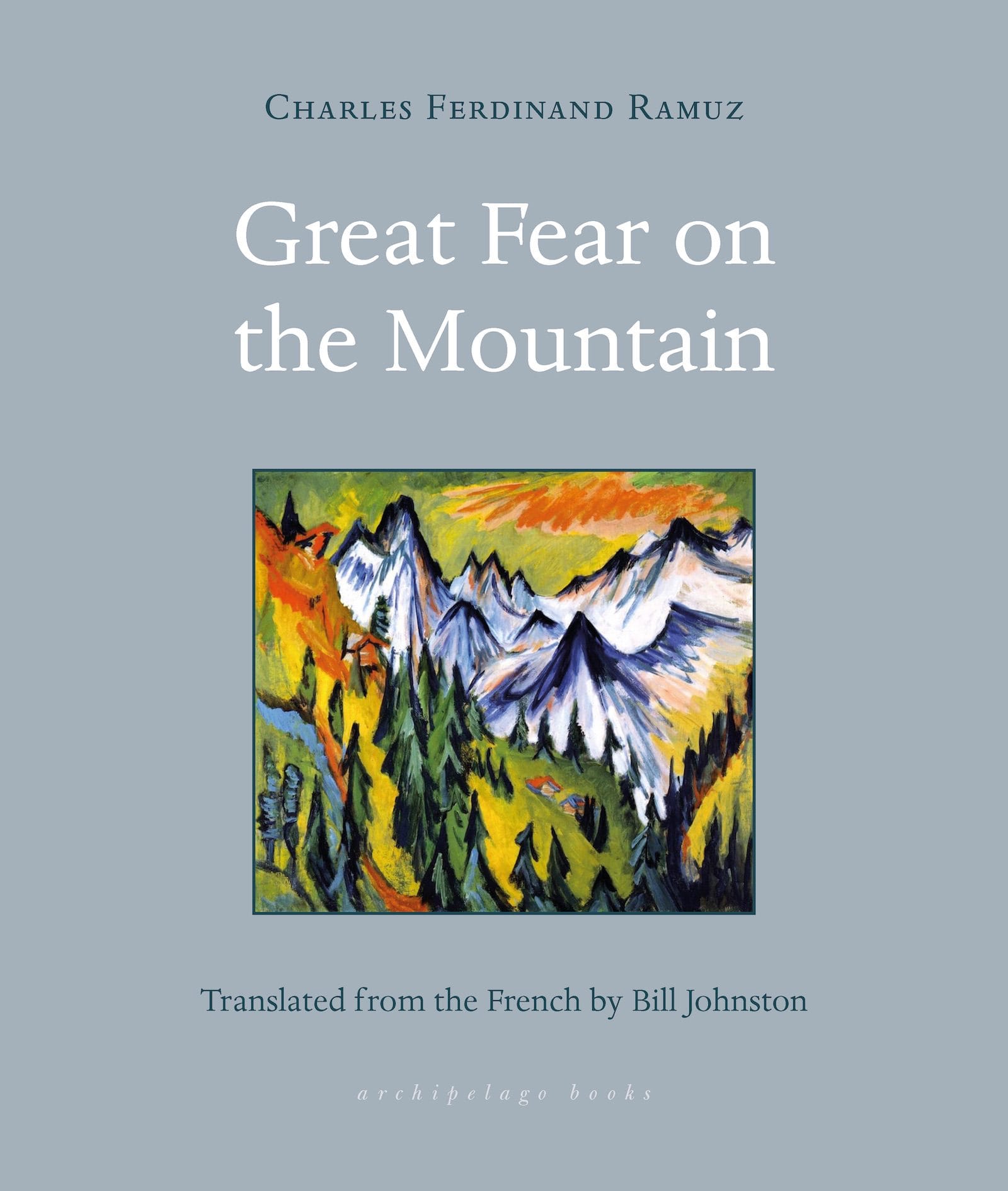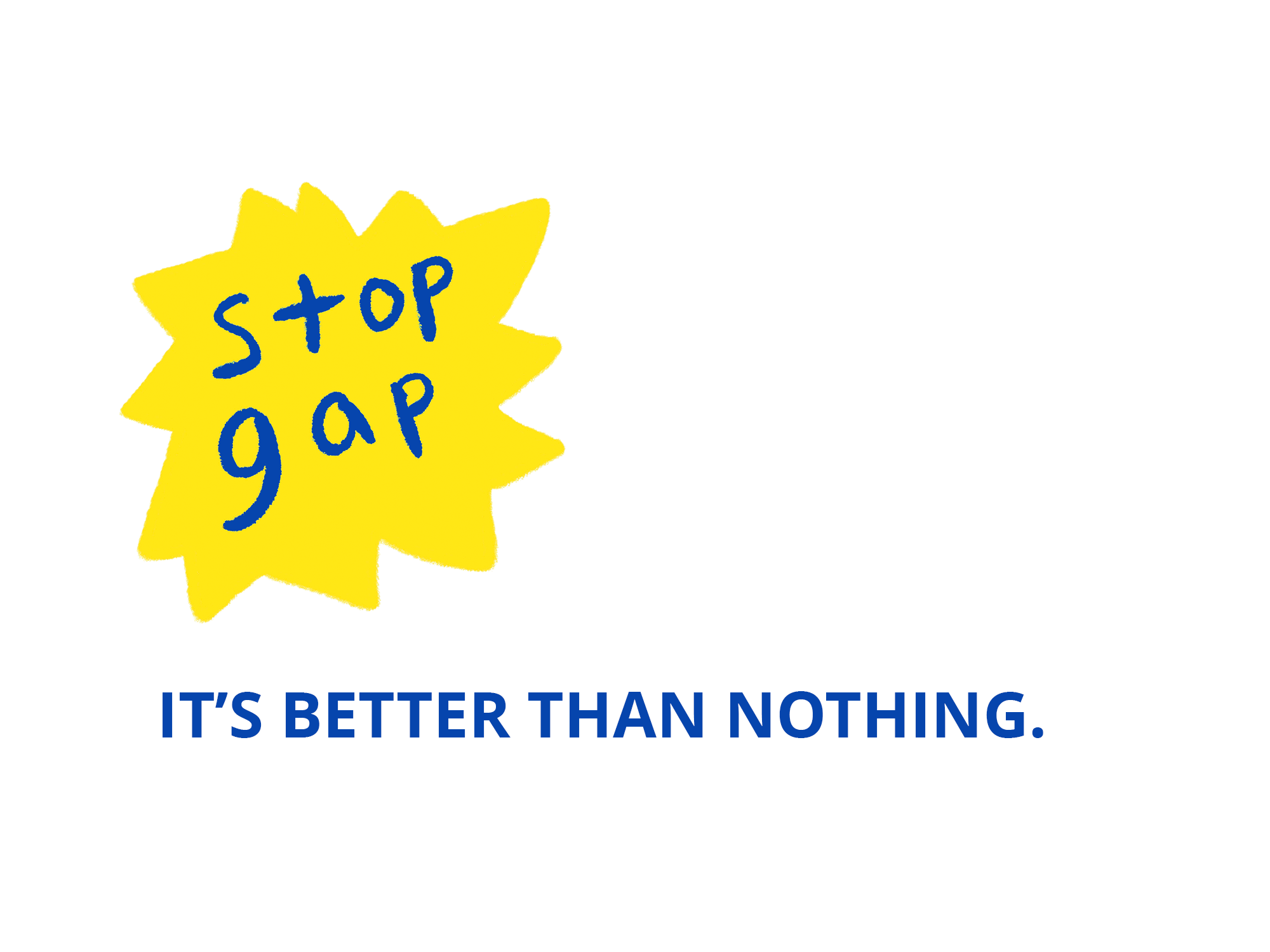Alpine Menace Memory Hunt

A Google story
Today I went through a serious trial. A trial many will recognize, I think—that of having forgotten the fucking title to a book that has been lodged in your mind all year. For a good hour I entered search terms like "french novel set in the alps cattle grazing" to no avail.

These were all the aspects I remembered about the book. It had been set on top of a really tall mountain and had scared the living daylights out of me.
What I most knew was that I had read it just before reading Jean Giono's A King Alone, which I loved so much that I posted about it in brief. That's why I tried the extremely stupid "novels similiar to Jean Giono A King Alone" search.
I described A King Alone like this in that post:
First published in 1947 in French as Un roi sans divertissement (a king without distraction). It's set high in the Prealps in France in 1843-48, where cloud and snow clamp down over everything in winter and where, during one particularly dense storm, villagers started to disappear.
Giono was a pacifist who was locked up by the Resistance. He'd also published in La Gerbe, the collaborator newspaper. He wrote this after the war.

What I'd felt when reading the Giono was eerie familiarity. There had been another book about the high Alps, or the Prealps, or something, and some similar feeling of cursedness and fruitless investigation on the part of the village's human inhabitants. There definitely, definitely was a significance to the weather, possibly a fog covering the mountaintop. There could have been a supernatural element or it could have just been so frightening to consider living in the fogringed apex of everything. It was definitely translated but I couldn't remember from German or French or Italian or Schweizerdeutsch or what. But what was it?
Why couldn't I remember, when I must have read them mere days apart? The most obvious answer was that the Giono was more powerful and had displaced the earlier book from my imagination. But there were other problems.
Chief among them was the fact that this basic format had since been recycled in fiction not a few times. Over and over again in my googling I was referred to Donato Carrisi's 2015 novel The Girl in the Fog (La ragazza nella nebbia), which was adapted into a movie in 2017. That wasn't it at all, although it did feature a girl disappearing into the fog on the top of a high mountain and then somebody failing to find her, which seemed familiar, but I couldn't tell which book it was familiar from.
More books that were not the book but which Google suggested: Cécile Aubrey's Belle et Sébastien; John Berger's Pig Earth; freaking Heidi.
The Carrisi could have been the book, if it hadn't been completely from the wrong time. Carrisi was probably influenced by Giono, in some way, but this other novel had been too. Unless it had come first?
Then I remembered the cow aspect. That's how I ended up on the Wikipedia for Alpine Transhumance, the lovely name for farmers in the Alps moving their cows around. The unhappiness of cows had definitely been a part of the first book, at least since I knew that one of the two mountaintop books had featured cow disasters and there seemed to be no such thing in A King Alone. But the "culture" section of Alpine Transhumance had no novels listed.
The Giono I'd read in a NYRB translation, so I then tried looking at every single book in the NYRB's "products" page, but it wasn't there.
Then, finally, I had a little bit of luck. With the addition of "cattle grazing" and maybe the adjective ominous I was led to the novel Derborence, a French-language novel by Swiss writer Charles-Ferdinand Ramuz.
Derborence is also the name of an Alp. Something about this sounded right: it's a love story set amid a massive rockfall disaster that cuts off a high-up village. Love story was definitely wrong, but my memory pinged with the notion of fallen rocks and searching. But no: rocks might have fallen, but that wasn't the central conceit of the novel. Derborence is entirely structured around a landslide.
Infuriated, I thought, well, maybe this writer only has one subject. I searched Charles-Ferdinand Ramuz and looked down his published works on his Wikipedia page and there it was: La Grande Peur dans la montagne, 1926, recently republished in translation by Archipelago Books as Great Fear on the Mountain.

I recognized the cover definitively. I once said via email to someone at the NYRB that I would "take everything!", which they seemed to have taken seriously, and now I get all kinds of glorious ARCs of the best stuff ever. Archipelago I also get a lot of fantastic books from, because I read for a translation prize, and that's their thing.
Now I realized what had seemed extra eerie about the reading coincidence—the mountaintop fog horror contingency: The books were unrelated editorially. They'd just happened to arrive at my flat the same week.
Now I could figure out what came first, who influenced whom. And it was Ramuz! The Jean Giono is much weirder in its diction, but much more conventional in plot, because there's a detective. The Ramuz is wildly fucking weird. There are just starving villagers and a cursed field and a vague atmosphere of allegory and doom.
The Giono came after World War II, and its author's terrible troubles during it, and the Ramuz was interwar. I wanted to find out if Ramuz had fought in WWI, but instead of discovering that information, I found out that Igor Stravinsky had met Ramuz through a mutual friend while himself being stranded in the Alps during WWI and then composed L'Histoire du Soldat (The Soldier's Tale).
So, no fighting, but instead, talking with Stravinsky and helping to create the sound of the war instead. Good god! I love Google. Everything is connected to everything. Like a chain of mountain peaks or every generation of animals cultivated by farmers.
Read both these books immediately if you can, you will not regret it (nor ever now forget their connection).


Comments ()